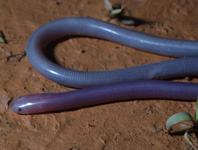Abstract
The most recent checklist of Iranian mosquitoes (Diptera: Culicidae) includes 64 species representing seven genera (Azari-Hamidian, 2007; Azari-Hamidian & Harbach, 2009). Subsequently, Oshaghi et al. (2008) found that Anopheles superpictus Grassi is two species in Iran based on the Internal Transcribed Spacer 2 (ITS2) sequences of rDNA, which were later listed as species A and B by Harbach (2013), and Djadid et al. (2009) recognized a new species of the Anopheles hyrcanus group (An. hyrcanus spIR) from southwestern Iran, also based on ITS2 sequence data. More recently, Doosti et al. (2016) reported the occurrence of Aedes albopictus (Skuse) in southeastern Iran.
References
Azari-Hamidian, S. (2003) On the tree hole mosquito (Diptera: Culicidae) fauna, ecology and medical importance in Guilan Province. 4th National Iranian Congress of Parasitology & Parasitic diseases, 13–16 Oct 2003, Mashhad University of Medical Sciences, Mashhad, Iran, p. 293.
Azari-Hamidian, S. (2007) Checklist of Iranian mosquitoes (Diptera: Culicidae). Journal of Vector Ecology, 32, 235–242.
https://doi.org/10.3376/1081-1710(2007)32[235:COIMDC]2.0.CO;2Azari-Hamidian, S. & Harbach, R.E. (2009) Keys to the adult females and fourth-instar larvae of the mosquitoes of Iran (Diptera: Culicidae). Zootaxa, 2078, 1–33.
Azari-Hamidian, S. (2011) Larval habitat characteristics of the genus Anopheles (Diptera: Culicidae) and a checklist of mosquitoes in Guilan Province, northern Iran. Iranian Journal of Arthropod-Borne Diseases, 5, 37–53.
Becker, N., Petric, D., Zgomba, M., Boase, C., Madon, M., Dahl, C. & Kaiser, A. (2010) Mosquitoes and Their Control. 2nd Edition. Springer, Heidelberg, 577 pp.
https://doi.org/10.1007/978-3-540-92874-4Belkin, J.N. (1962) The Mosquitoes of the South Pacific (Diptera, Culicidae). Volumes I and II. University of California Press, Berkeley, 608 & 412 pp.
Cambournac, F.J.C. (1943) Orthopodomyia pulchripalpis Rondani (Diptera, Culicidae); sua ocorrencia em Portugal. Anais do Instituto de Medicina Tropical, 1, 71–77.
Chamberlain, R.W., Sikes, R.K., Nelsen, D.B. & Suda, W.D. (1954) Studies on the North American arthropod-borne encephalitides. VI. Quantitative determinations of virus-vector relationships. American Journal of Hygiene, 60, 278–285.
Cranston, P.S., Ramsdalem, C.D., Snow, K.R. & White, G.B. (1987) Keys to the Adults, Male Hypopygia, Fourth-Instar Larvae and Pupae of the British Mosquitoes (Culicidae) with Notes on their Ecology and Medical Importance. Fresh Water Biological Association Scientific Publication, No. 48. Freshwater Biological Association, Cumbria, 152 pp.
Djadid, N.D., Jazayeri, H., Gholizadeh, S., Rad, S.P. & Zakeri, S. (2009) First record of a new member of Anopheles Hyrcanus Group from Iran: molecular identification, diagnosis, phylogeny, status of kdr resistance and Plasmodium infection. Journal of Medical Entomology, 46, 1084–1093.
https://doi.org/10.1603/033.046.0515Doosti, S., Yaghoobi-Ershadi, M.R., Schaffner, F., Moosa-Kazemi, S.H., Akbarzadeh, K., Gooya, M.M., Vatandoost, H., Shirzadi, M.R. & Mostafavi, E. (2016) Mosquito surveillance and the first record of the invasive mosquito species Aedes (Stegomyia) albopictus (Skuse) (Diptera: Culicidae) in southern Iran. Iranian Journal of Public Health, 45, 1064–1073.
Edwards, F.W. (1921) A revision of the mosquitoes of the Palaearctic Region. Bulletin of Entomological Research, 12, 263–351.
https://doi.org/10.1017/S0007485300040207Edwards, F.W. (1932) Genera Insectorum. Diptera. Fam. Culicidae. Fasicle 194. Desmet-Verteneuil, Beussels, 258 pp.
Gutsevich, A.V. (1943) On the mosquitoes of north Iran. Comptes Rendus Academic Science USSR, 40, 123–125.
Gutsevich, A.V., Monchadskii, A.S. & Shtakelberg, A.A. (1974) Fauna of the USSR Diptera. Vol. III. No 4. Mosquitoes Family Culicidae. NS No 100. Akad Nauk SSSR Zool Inst, Leningrad, 408 pp. [in Russian, English translation by R Lavoott, ed. by Prof O Theodor. Israel Program for ScientificTranslations, Jerusalem]
Harbach, R.E. (2007 onwards) Mosquito Taxonomic Inventory. Available from: http://mosquito-taxonomic-inventory.info/ (accessed 1 October 2016)
Harbach, R.E. & Kitching, I.J. (1998) Phylogeny and classification of the Culicidae (Diptera). Systematic Entomology, 23, 327–370.
https://doi.org/10.1046/j.1365-3113.1998.00072.xHarbach, R.E. (2013) The phylogeny and classification of Anopheles. In: Manguin, S. (Ed.) Anopheles Mosquitoes – New Insights into Malaria Vectors. InTech, Rijeka, Croatia, pp. 1–55.
https://doi.org/10.5772/54695Knight, K.L. & Stone, A. (1977) A Catalog of the Mosquitoes of the World (Diptera: Culicidae). 2nd Edition. Thomas Say Foundation and Entomological Society of America, Maryland, College Park, 611 pp.
Marshall, J.F. & Staley, J. (1933) A new British record of Orthopodomyia pulchripalpis Rondani (Diptera, Culicidae). Nature, 131, 435.
https://doi.org/10.1038/131435a0Marshall, J.F. (1938) The British Mosquitoes. British Museum (Natural History), London, 341 pp.
Mattingly, P.F. (1970) Mosquito eggs XI. Genera Orthopodomyia and Mimomyia. Mosquito Systematic Newsletter, 2, 160–164.
Mattingly, P.F. (1971) Mosquito eggs XII. Further notes on genera Orthopodomyia and Mimomyia. Mosquito Systematic Newsletter, 3, 66–68.
Medlock, J.M., Snow, K.R. & Leach, S. (2005) Potential transmission of West Nile virus in the British Isles: an ecological review of candidate mosquito bridge vectors. Medical and Veterinary Entomology, 19, 2–21.
https://doi.org/10.1111/j.0269-283X.2005.00547.xMunstermann, L.E., Marchi, A., Sabatini, A. & Coluzzi, M. (1985) Polytene chromosomes of Orthopodomyia pulcripalpis (Diptera, Culicidae). Parassitologia, 27, 267–277.
Oshaghi, M.A., Yaghobi-Ershadi, M.R., Shemshad, Kh., Pedram, M. & Amani, H. (2008) The Anopheles superpictus complex: introduction of a new malaria vector complex in Iran. Bulletin de la Societe de Pathologie Exotique, 101, 429–434.
Ribeiro, H., Ramos, H.C., Pires, C.A. & Capela, R.A. (1988) An annotated checklist of the mosquitoes of continental Portugal (Diptera: Culicidae). Actas III Congreso Iberico de Entomologia, December 1988, Granada, 233–253.
Rondani, C. (1872) Sulle specie Italiane del genere Culex. Bollettino della Societa Entomologica Italiana, 4, 29–31.
Ross, H.H. (1951) Conflict with Culex. Mosquito News, 11, 128–132.
Shannon, R.C. & Hadjinicolaou, J. (1938) Greek Culcidae which breed in tree-holes. Acta Instituti et Musei Zoologici Universitatis Atheniensis, 1, 173–178.
Snow, K.R. (1985) A note on the spelling of the name Orthopodomyia pulcripalpis (Rondani 1872). Mosquito Systematics, 17, 361–362.
Tate, P. (1932) The larval instars of Orthopodomyia pulchripalpis Rond. (Diptera Nematocera). Parasitology, 24, 111–120.
https://doi.org/10.1017/S003118200002045XVargas, L. (1960) Los mosquitos de Sonora en relacion con el problem de encephalitis. Revista Mexicana de Medicina, 40, 338–345.
Verrall, G.H. (1901) A List of British Diptera. 2nd Edition. Cambridge University Press, Cambridge, 47 pp.
https://doi.org/10.5962/bhl.title.20297Ward, R.A. (1992) Third supplement to “A Catalog of the Mosquitoes of the World” (Diptera: Culicidae). Mosquito Systematics, 24, 177–230.
Zavortink, T.J. (1968) Mosquito studies (Diptera, Culicidae) VIII. A prodrome of the genus Orthopodomyia. Contributions of the American Entomological Institute, 3, 1–221.

